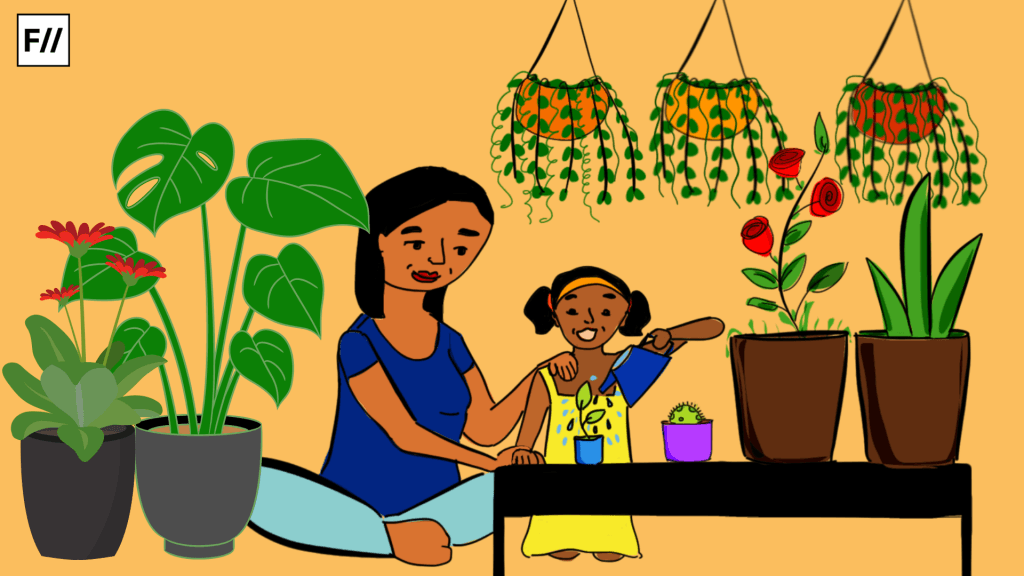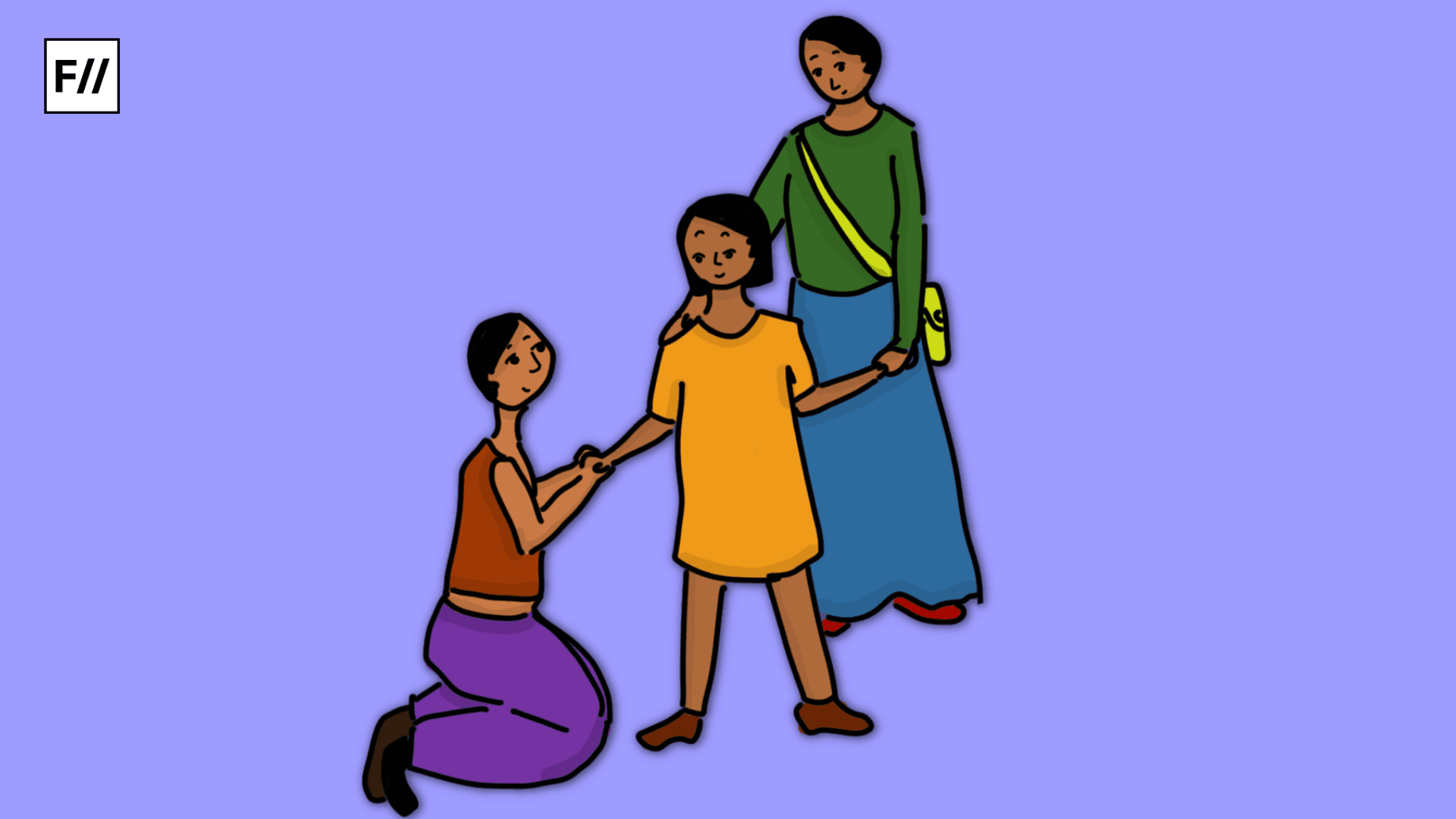The latest shutdown of 22 crèches in Delhi has exposed many working mothers to the precarious situation they experience while sealing their professional and family responsibilities. This decision was taken by the Delhi government while revamping the working of the PALNA scheme in many families who are struggling to find proper childcare facilities and can only opt for better job chances or child care. As the government continues to transform into Anganwadi cum crèches (AWCCs), questions have begun to crop up on the effectiveness of these modern buildings as well as their effectiveness in addressing the issues of working families.
As female labour force participation rates have fallen and childcare resources have become scarce, this shows a systemic breakdown in which women in the workforce are the victims.
Short-term impact of crèche closure
According to a Newslaundary report, the ongoing shutdown of 22 of the crèches in Delhi that are under 29 NGOs remains a major problem among many families that depend on these companies. Every one of such crèches offered care, feeding and early childhood development services to 25 children at maximum. These closures have not been communicated well and have therefore left many working mothers to leave their children with neighbours, an informal situation not as protected as proper daycare services. Further, certain females have been forced to quit their jobs and work as babysitters due to the closure of the near crèche.

These closures are not just a small encumbrance, they mean job loss and much more difficulty in gaining employment for many women. Based on the information from the Ministry of Women and Child Development, India’s women workforce participation declined from 32 per cent in 2005 to 19 per cent in 2021. This decline is accompanied by problems with childcare, particularly a lack of accessible childcare facilities that make women have to decide between work and family. The dismantling of these crèches therefore, not only affects individual lives but creates overall economic issues that affect women being pushed out of the workplace.
Shift to Anganwadi Cum Crèches: A questionable solution
While this is presented by the government as an effort to save costs by operating integrated vehicles for both the Anganwadis and crèches known as the Anganwadi cum crèches, several questions relating to accessibility and quality of the services offered must be asked. All the new AWCCs aim at covering them with meagre resources and less staff than before, a factor which may radically decrease the level of adequate care. In general, Anganwadis focus on children under six years of age but do not provide care to infants or toddlers –which is indeed a big problem as parents are hardly provided with options concerning their younger kids.

In addition, the hours of operation of an Anganwadi are limited and there are fewer centres exclusively for crèche purposes. Still, many Anganwadis are functional for only 3 hours in the day and can function for only half the month. This drastic reduction in service availability presents practical difficulties where working mothers need predictable childcare services.
POSHAN tracker states that out of over 10,000 Anganwadi centres in Delhi, only two are open for at least 25 days every single month. This is especially concerning for working parents who seek childcare during the working days and whose options are now limited to substandard seeker centres that only offer services in the evenings and at weekends. Determining whether such new facilities can provide adequate service to replace the vertical structure of standalone crèches triggers basic doubts.
Broader context: Gender discrimination and economic perspective
It is not a small fact that these closures have happened; it raises a much broader question of gender inequality in India as a nation. Households assign women with most responsibilities when it comes to child care since culture plays a central role in determining the roles anyone should play when it comes to children. Such expectation makes them partly participate in the labour market thus resulting in low female labour force participation levels.

A preliminary study reveals that when women cannot find affordable care services for their children, they end up getting paid less demanding professions or irregular employment that cannot support them well. According to a report, “Around 8,143 crèches shut down in India between 2013-14 and 2016-17,” which saw an alarming cut down in beneficiaries of the National Crèche Scheme by 39 per cent. As much as it hinders women’s economic autonomy, it also cycles poor families on two incomes through the endurance of job loss patterns.
In addition, the socialisation of gender roles exacerbated these problems because women were confined to home caregiving roles when schools and daycare facilities closed due to the COVID-19 pandemic. The economic consequences that followed have meant that many women are now economically challenged on how to find good jobs after they have taken time off work.
A call for holistic children’s arrangement
While Delhi is in this crisis due to shut down of crèches currently there is a need for well-rounded childcare policies that serve working parents. Such a shift to focus on Anganwadi cum Crèches has to be made hand in hand with sufficient funding, and resources to guarantee quality care for the kids, whether or not their parents are at work.
It is not simply a luxury to build strong childcare systems, but an economic imperative that can help increase women’s labour force attachment and benefit society more broadly. If implemented correctly childcare solutions can enable women to gain an economic capacity, at the same time as children gain developmental stimulus during their early ages.
Therefore, unless proper activities are commenced, and careful policies are implemented for universal accessibility of higher quality childcare services, the nation will be doomed to repeat cycles of unequal quality of women’s economic opportunities as well as child development potential across Indian territory. This path cannot continue as we strive to construct a society in which all families can live fulfilling lives without having to make trade-offs between work and family.
About the author(s)
Ainee Ilyas is a writer and researcher with a strong foundation in law and human rights, specializing in the intersections of gender, social justice, and public policy. Passionate about feminist thought, her work amplifies marginalized voices and challenges conventional narratives. With experience in editorial writing, policy analysis, and rights-based research.




